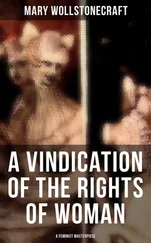Andrea Dworkin - The Political Memoir of a Feminist Militant
Здесь есть возможность читать онлайн «Andrea Dworkin - The Political Memoir of a Feminist Militant» весь текст электронной книги совершенно бесплатно (целиком полную версию без сокращений). В некоторых случаях можно слушать аудио, скачать через торрент в формате fb2 и присутствует краткое содержание. Жанр: Публицистика, на английском языке. Описание произведения, (предисловие) а так же отзывы посетителей доступны на портале библиотеки ЛибКат.
- Название:The Political Memoir of a Feminist Militant
- Автор:
- Жанр:
- Год:неизвестен
- ISBN:нет данных
- Рейтинг книги:4 / 5. Голосов: 1
-
Избранное:Добавить в избранное
- Отзывы:
-
Ваша оценка:
- 80
- 1
- 2
- 3
- 4
- 5
The Political Memoir of a Feminist Militant: краткое содержание, описание и аннотация
Предлагаем к чтению аннотацию, описание, краткое содержание или предисловие (зависит от того, что написал сам автор книги «The Political Memoir of a Feminist Militant»). Если вы не нашли необходимую информацию о книге — напишите в комментариях, мы постараемся отыскать её.
The Political Memoir of a Feminist Militant — читать онлайн бесплатно полную книгу (весь текст) целиком
Ниже представлен текст книги, разбитый по страницам. Система сохранения места последней прочитанной страницы, позволяет с удобством читать онлайн бесплатно книгу «The Political Memoir of a Feminist Militant», без необходимости каждый раз заново искать на чём Вы остановились. Поставьте закладку, и сможете в любой момент перейти на страницу, на которой закончили чтение.
Интервал:
Закладка:
him. He won the debate. This made me question not my
beliefs in equality and fairness but how one could communicate those beliefs. I felt the humiliation of defeat, of course.
I don’t like losing, and I was stunned that I did lose. Stil , the
home team had lost because students thought that Mr. Lewis
III was correct. These were the years of the John Birch Society
and None Dare Cal It Treason , a book in which commies and
socialists were hidden in every nook and cranny of the government and the media, and the point was that these equality-minded folks were Soviet dupes, low and venal. I didn’t see
how my classmates could think being against poverty or for
integration were Soviet ideas or treasonous ideas. Mr. Lewis
was exceptionally gracious.
This was the beginning for me of thinking about something
the entertainer Steve Allen, a liberal, had writ en in National
Review. Roughly paraphrased, Mr. Allen’s piece asked why a
person was categorized as just a liberal or just a conservative.
Wasn’t that same person also a musician or a teacher and a
husband and a father? The patrilineal approach was the only
approach in those days, liberal or conservative. I thought it
was probably wrong to hate people for their politics unless
they were doing evil, as Mr. Kane was. The argument remains
alive; the stereotypes persist, veiled now in a postcommie
rhetoric; I think that hate crimes are real crimes against groups
of people, imputing to those people a lesser humanity. And
58


Young Americans for Freedom
even though I’ve lost debates since the one with Mr. Lewis
III, I still think it’s worth everything to say what you believe.
There are always consequences, and one must be prepared to
face them. In this context there is no free speech and there
never will be.
I think especially of watching William Buckley, on his Firing
Line television program in the 1960s, debate the writer James
Baldwin on segregation. Buckley was elegant and brilliant and
wrong ; Baldwin was passionate and bril iant and wore his
heart on his sleeve - he was also right. But Buckley won the
debate; Baldwin lost it. I’l never forget how much I learned
from the confrontation: be Baldwin, not Buckley.
59


Cuba 2
The bad news came first from Allen Young, a gay activist: in
Cuba homosexuals were being locked up; homosexuality was
a crime against the state. A generation later I read the work of
Reinaldo Arenas, a homosexual writer who refused to be
crushed by the state and wrote a florid, uncompromising prose.
I read the prison memoirs of Armando Val adares and heard
from some friends raised in Cuba and original supporters of
Castro and Che about whole varieties of oppression and
brutality. There was also more recently a stunning biography
of Che by John Lee Anderson that gave Che his due - coldblooded kil er and immensely brave warrior. Of course, the river of blood and suffering makes it hard to say why so many
of us, from David Smith to myself, saw so much hope in the
Cuban revolution. Batista’s thuggery was indisputable; his
thievery, too, from a population of the exceptionally poor and
largely illiterate was ugly; but the worst part of it was U. S.
support for his regime. That support made many of us challenge the political morality of the United States. Castro claimed he wanted an end to poverty and il iteracy, and I believed him.
Castro up against Batista is the mise-en-scene. With Castro
60


Cuba 2
the poor would have food and books. Castro also promised to
stop prostitution, which had destroyed the lives of thousands
of poor women and children; prostitution was considered
one of the perks of capitalism, and Havana in particular was
known for prostitution writ large. Where there was hunger,
there would be women and children selling sex. Now we would
know to look for other phenomena as well: incest or child
sexual abuse, homelessness, predatory traffickers. It would
have been hard to think of Castro as worse than Batista
outside the context of the cold war. When the tiny band of
guerrilla fighters conquered Havana and extirpated the Batista
regime, it was hard to mourn unless the prospect of equality,
which was the promise, inevitably meant tyranny (which I
think is the right-wing argument). Virtual y forced by the
United States into an alliance with the Soviets, Castro’s
system of oppression slowly supplanted Batista’s. Watching
the United States now cuddle with the Chinese because
Chinese despotism is rhetorical y commit ed to capitalism,
one can only mourn the chance lost to the Cuban people
thirty-some years ago when the United States might have
been a strategic al y or neighbor. I’m saying that the United
States pushed Cuba into the Soviet camp and that Castro
became what he became because of it.
61


The Grand Jury
I was eighteen; it was 1965; a grand jury had been impaneled
to investigate the charges I had made against New York City’s
Women’s House of Detention, the local Bastil e that sat in the
heart of Greenwich Village, in the heart of Bohemia itself. I
had been sexually brutalized and had turned the internal
examinations of women in that place into a political issue
that would eventually topple the ancien regime, the callous,
encrustated Democrats.
I had been subpoenaed to testify on a certain day at a certain
time. My French class at Bennington was also on that day, at
that time, and I was hopeless in the language. My French professor took my haplessness in French rather personally and refused to give me permission to miss the class. I explained
that I had to be absent anyway, and I was. She backed off of her
threat to give me a failing mark and gave me a near-failing
mark instead.
I stayed at a friend’s apartment in New York the night
before my testifying, and Frank Hogan, New York City’s
much-admired district attorney, came with another man that
Читать дальшеИнтервал:
Закладка:
Похожие книги на «The Political Memoir of a Feminist Militant»
Представляем Вашему вниманию похожие книги на «The Political Memoir of a Feminist Militant» списком для выбора. Мы отобрали схожую по названию и смыслу литературу в надежде предоставить читателям больше вариантов отыскать новые, интересные, ещё непрочитанные произведения.
Обсуждение, отзывы о книге «The Political Memoir of a Feminist Militant» и просто собственные мнения читателей. Оставьте ваши комментарии, напишите, что Вы думаете о произведении, его смысле или главных героях. Укажите что конкретно понравилось, а что нет, и почему Вы так считаете.












